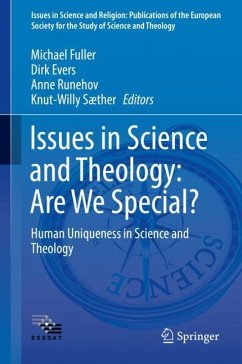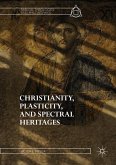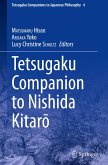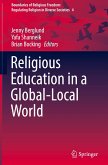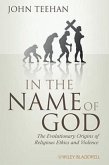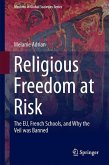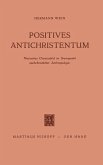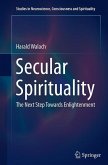Issues in Science and Theology: Are We Special?
Human Uniqueness in Science and Theology
Herausgegeben:Fuller, Michael; Evers, Dirk; Runehov, Anne; Sæther, Knut-Willy
Issues in Science and Theology: Are We Special?
Human Uniqueness in Science and Theology
Herausgegeben:Fuller, Michael; Evers, Dirk; Runehov, Anne; Sæther, Knut-Willy
- Gebundenes Buch
- Merkliste
- Auf die Merkliste
- Bewerten Bewerten
- Teilen
- Produkt teilen
- Produkterinnerung
- Produkterinnerung
This book offers a penetrating analysis of issues raised by the perennial question, 'Are We Special?' It brings together scholars from a variety of disciplines, from astronomy and palaeontology to philosophy and theology, to explore this question. Contributors cover a wide variety of issues, including what makes humans distinct from other animals, the possibilities of artificial life and artificial intelligence, the likelihood of life on other planets, and the role of religious behavior. A variety of religious and scientific perspectives are brought to bear on these matters. As a whole, the…mehr
Andere Kunden interessierten sich auch für
![Christianity, Plasticity, and Spectral Heritages Christianity, Plasticity, and Spectral Heritages]() Victor E. TaylorChristianity, Plasticity, and Spectral Heritages38,99 €
Victor E. TaylorChristianity, Plasticity, and Spectral Heritages38,99 €![Tetsugaku Companion to Nishida Kitar¿ Tetsugaku Companion to Nishida Kitar¿]() Tetsugaku Companion to Nishida Kitar¿82,99 €
Tetsugaku Companion to Nishida Kitar¿82,99 €![Religious Education in a Global-Local World Religious Education in a Global-Local World]() Religious Education in a Global-Local World82,99 €
Religious Education in a Global-Local World82,99 €![In the Name of God In the Name of God]() John TeehanIn the Name of God95,99 €
John TeehanIn the Name of God95,99 €![Religious Freedom at Risk Religious Freedom at Risk]() Melanie AdrianReligious Freedom at Risk38,99 €
Melanie AdrianReligious Freedom at Risk38,99 €![Positives Antichristentum Positives Antichristentum]() Hermann WeinPositives Antichristentum54,99 €
Hermann WeinPositives Antichristentum54,99 €![Secular Spirituality Secular Spirituality]() Harald WalachSecular Spirituality38,99 €
Harald WalachSecular Spirituality38,99 €-
-
-
This book offers a penetrating analysis of issues raised by the perennial question, 'Are We Special?' It brings together scholars from a variety of disciplines, from astronomy and palaeontology to philosophy and theology, to explore this question. Contributors cover a wide variety of issues, including what makes humans distinct from other animals, the possibilities of artificial life and artificial intelligence, the likelihood of life on other planets, and the role of religious behavior. A variety of religious and scientific perspectives are brought to bear on these matters. As a whole, the book addresses whether the issue of human uniqueness is one to which sciences and religions necessarily offer differing responses.
Produktdetails
- Produktdetails
- Issues in Science and Religion: Publications of the European Society for the Study of Science and Th
- Verlag: Springer / Springer International Publishing / Springer, Berlin
- Artikelnr. des Verlages: 978-3-319-62123-4
- 1st ed. 2017
- Seitenzahl: 332
- Erscheinungstermin: 2. November 2017
- Englisch
- Abmessung: 241mm x 160mm x 24mm
- Gewicht: 666g
- ISBN-13: 9783319621234
- ISBN-10: 3319621238
- Artikelnr.: 48386488
- Herstellerkennzeichnung
- Springer Nature c/o IBS
- Benzstrasse 21
- 48619 Heek
- Tanja.Keller@springer.com
- Issues in Science and Religion: Publications of the European Society for the Study of Science and Th
- Verlag: Springer / Springer International Publishing / Springer, Berlin
- Artikelnr. des Verlages: 978-3-319-62123-4
- 1st ed. 2017
- Seitenzahl: 332
- Erscheinungstermin: 2. November 2017
- Englisch
- Abmessung: 241mm x 160mm x 24mm
- Gewicht: 666g
- ISBN-13: 9783319621234
- ISBN-10: 3319621238
- Artikelnr.: 48386488
- Herstellerkennzeichnung
- Springer Nature c/o IBS
- Benzstrasse 21
- 48619 Heek
- Tanja.Keller@springer.com
Michael Fuller has taught science and theology at the University of Edinburgh since 1998. He is the author of a monograph and numerous articles dealing with the interface of science and religion, and he has edited many symposia relating to this subject. He is Chair of the UK Science and Religion Forum, and Vice-President for Publications of the European Society for the Study of Science and Theology. He is an Anglican Priest, and for 15 years was Pantonian Professor at the Theological Institute of the Scottish Episcopal Church. His research interests include ethical issues raised by new and emerging sciences. Dirk Evers is Professor of Dogmatics and Philosophy of Religion at Martin-Luther-University Halle-Wittenberg, Germany. Before joining Halle University in 2010 as a faculty member, he worked as assistant professor at Tübingen University under Eberhard Jüngel. Since his doctoral thesis on cosmology and doctrine of creation in 2000 he has been doing interdisciplinary work at the intersection of science and theology. Since 2014 he has been president of ESSSAT (European Society for the Study of Science and Theology), and he is managing editor of the journal Philosophy, Theology, and the Sciences. Anne L.C. Runehov -family: Helvetica, sans-serif;">has a Reader (Associate Professor) degree from Uppsala University. She earned a Doctoral degree in Philosophy of Religion at Uppsala University, and a Masters degree in Theoretical Philosophy, majoring in Philosophy of Mind, at the same university. Her latest monograph "The Human Being, the World and God" was published 2016 by Springer. She is the Editor in Chief of the 4 volume Encyclopaedia of Sciences and Religions, Springer 2013. She is co-editor for the volume: "Processes of Believing: The Acquisition, Maintenance, and Change in Creditions", Springer 2017. She was also Editor in Chief for the series Copenhagen University Discussions in Science and Religion, Faculty of Theology publications, Copenhagen until May 2014. She is also field editor for the European Journal of Science and Theology. Her first monograph "Sacred or Neural? The Potential of Neuroscience to Explain Religious Experiences" was published by Vandenhoeck & Ruprecht, 2007: it is based on her doctoral thesis, for which she received the 2006 ESSSAT research prize. Her main research interests lie on the interface of Philosophy of Religion, Philosophy of Mind and Neuroscience, i.e. neurophilosophy. Knut-Willy Sæther is Professor at Department of Religious Studies, Volda University College, and NLA University College, Bergen, Norway. He received his doctoral degree from the Norwegian University of Technology and Science, Trondheim (2005) for a dissertation in theology and science. His main area of work is the philosophy of religion and he does interdisciplinary work including philosophy, theology, aesthetics and science. He is currently Scientific Program Officer at European Society for the Studies in Science and Theology (ESSSAT). He has published several books.
Chapter 1. Being Human in a Cosmic Context (David Wilkinson).- Chapter 2. Is Life Unique? Perspectives from Astrobiology and Synthetic Xenobiology (Elisabeth Loos).- Chapter 3. Are We Special? Humanity and Extraterrestrial Life (Alfred Kracher).- Chapter 4. The Cosmic Christ's End: The Cosmological Meaning of Christ in an Interreligious Perspective, with a Focus on Jewish-Christian Eschatology (Andreas Losch).- Chapter 5. Darwinian Evolution of the Human Body and Culture (Jerzy Dzik).- Chapter 6. What are human beings (that you are mindful of them)? Notes from neo-Darwinsim and neo-Aristotelianism (Jonathan Jong).- Chapter 7. Does Religious Behavior
Render Humans Special? (Lluis Oviedo and Jay R. Feierman).- Chapter 8. Is Homo naledi Going to Challenge our Presuppositions on Human Uniqueness? (Rubén Herce).- Chapter 9. Theology Looking at Culture Through the Lenses of Science (Ivan Colagè).- Chapter 10. Strong Artificial Intelligence and Imago Hominise: 9pt; line-height: 115%; font-family: Helvetica, sans-serif; background-image: initial; background-position: initial; background-size: initial; background-repeat: initial; background-attachment: initial; background-origin: initial; background-clip: initial;">: The risks of a Reductionist Definition of Human Nature (Sara Lumbreras).- Chapter 11. Boundless Riches: Big Data, the Bible and Human Distinctiveness (Michael Fuller).- Chapter 12. Do only Humans Sin? In Conversation with Frans de Waal (Ernst M. Conradie). Chapter 13. Human Uniqueness or Anthropocentrism? Semantic, Anthropological and Theological Clarifications in Dialogue with Damasio's Neuroscience (Luis O. Jiménez-Rodríguez).- Chapter 14. How may we Justify the History of the Universe?.- Chapter (Michael Heller).- Chapter 15. Human Uniqueness and the Normative Conception of the Rational (James Collin).- Chapter 16. Special? Oh, Please! And Yet ...(Roland Karo). Chapter 17. Aren't we Animals? Deconstructing or Decolonizing the Human - Animal Divide (Angela Roothaan). Chapter 18. 'What Is Man That You Are Mindful of Him?' (Ps 8:4): How Theology Can Help to Answer the Question: What is it to be a Human Being? (Johanna Rahner). Chapter 19. Uniqueness and the Presence of the Image: Towards a Pneumatological Foundation for Human Uniqueness and the Image of God (Joanna Leidenhag).- Chapter 20. Human Uniqueness and Technology: Are we Co-Creators with God?(Victoria Lorrimar).- Chapter 21. Pope Francis' Encyclical Laudato si': Ecological Concerns and a Shift of Theological Approach to the Problems of Humanity and the Earth (Jacek Poznanski).- Chapter 22. Are Humans Special? Examining John Haught's Idea of 'Information' and the Daoist Idea of Qi in the Zhuangzi (Jaeho Jang).
Render Humans Special? (Lluis Oviedo and Jay R. Feierman).- Chapter 8. Is Homo naledi Going to Challenge our Presuppositions on Human Uniqueness? (Rubén Herce).- Chapter 9. Theology Looking at Culture Through the Lenses of Science (Ivan Colagè).- Chapter 10. Strong Artificial Intelligence and Imago Hominise: 9pt; line-height: 115%; font-family: Helvetica, sans-serif; background-image: initial; background-position: initial; background-size: initial; background-repeat: initial; background-attachment: initial; background-origin: initial; background-clip: initial;">: The risks of a Reductionist Definition of Human Nature (Sara Lumbreras).- Chapter 11. Boundless Riches: Big Data, the Bible and Human Distinctiveness (Michael Fuller).- Chapter 12. Do only Humans Sin? In Conversation with Frans de Waal (Ernst M. Conradie). Chapter 13. Human Uniqueness or Anthropocentrism? Semantic, Anthropological and Theological Clarifications in Dialogue with Damasio's Neuroscience (Luis O. Jiménez-Rodríguez).- Chapter 14. How may we Justify the History of the Universe?.- Chapter (Michael Heller).- Chapter 15. Human Uniqueness and the Normative Conception of the Rational (James Collin).- Chapter 16. Special? Oh, Please! And Yet ...(Roland Karo). Chapter 17. Aren't we Animals? Deconstructing or Decolonizing the Human - Animal Divide (Angela Roothaan). Chapter 18. 'What Is Man That You Are Mindful of Him?' (Ps 8:4): How Theology Can Help to Answer the Question: What is it to be a Human Being? (Johanna Rahner). Chapter 19. Uniqueness and the Presence of the Image: Towards a Pneumatological Foundation for Human Uniqueness and the Image of God (Joanna Leidenhag).- Chapter 20. Human Uniqueness and Technology: Are we Co-Creators with God?(Victoria Lorrimar).- Chapter 21. Pope Francis' Encyclical Laudato si': Ecological Concerns and a Shift of Theological Approach to the Problems of Humanity and the Earth (Jacek Poznanski).- Chapter 22. Are Humans Special? Examining John Haught's Idea of 'Information' and the Daoist Idea of Qi in the Zhuangzi (Jaeho Jang).
Chapter 1. Being Human in a Cosmic Context (David Wilkinson).- Chapter 2. Is Life Unique? Perspectives from Astrobiology and Synthetic Xenobiology (Elisabeth Loos).- Chapter 3. Are We Special? Humanity and Extraterrestrial Life (Alfred Kracher).- Chapter 4. The Cosmic Christ's End: The Cosmological Meaning of Christ in an Interreligious Perspective, with a Focus on Jewish-Christian Eschatology (Andreas Losch).- Chapter 5. Darwinian Evolution of the Human Body and Culture (Jerzy Dzik).- Chapter 6. What are human beings (that you are mindful of them)? Notes from neo-Darwinsim and neo-Aristotelianism (Jonathan Jong).- Chapter 7. Does Religious Behavior
Render Humans Special? (Lluis Oviedo and Jay R. Feierman).- Chapter 8. Is Homo naledi Going to Challenge our Presuppositions on Human Uniqueness? (Rubén Herce).- Chapter 9. Theology Looking at Culture Through the Lenses of Science (Ivan Colagè).- Chapter 10. Strong Artificial Intelligence and Imago Hominise: 9pt; line-height: 115%; font-family: Helvetica, sans-serif; background-image: initial; background-position: initial; background-size: initial; background-repeat: initial; background-attachment: initial; background-origin: initial; background-clip: initial;">: The risks of a Reductionist Definition of Human Nature (Sara Lumbreras).- Chapter 11. Boundless Riches: Big Data, the Bible and Human Distinctiveness (Michael Fuller).- Chapter 12. Do only Humans Sin? In Conversation with Frans de Waal (Ernst M. Conradie). Chapter 13. Human Uniqueness or Anthropocentrism? Semantic, Anthropological and Theological Clarifications in Dialogue with Damasio's Neuroscience (Luis O. Jiménez-Rodríguez).- Chapter 14. How may we Justify the History of the Universe?.- Chapter (Michael Heller).- Chapter 15. Human Uniqueness and the Normative Conception of the Rational (James Collin).- Chapter 16. Special? Oh, Please! And Yet ...(Roland Karo). Chapter 17. Aren't we Animals? Deconstructing or Decolonizing the Human - Animal Divide (Angela Roothaan). Chapter 18. 'What Is Man That You Are Mindful of Him?' (Ps 8:4): How Theology Can Help to Answer the Question: What is it to be a Human Being? (Johanna Rahner). Chapter 19. Uniqueness and the Presence of the Image: Towards a Pneumatological Foundation for Human Uniqueness and the Image of God (Joanna Leidenhag).- Chapter 20. Human Uniqueness and Technology: Are we Co-Creators with God?(Victoria Lorrimar).- Chapter 21. Pope Francis' Encyclical Laudato si': Ecological Concerns and a Shift of Theological Approach to the Problems of Humanity and the Earth (Jacek Poznanski).- Chapter 22. Are Humans Special? Examining John Haught's Idea of 'Information' and the Daoist Idea of Qi in the Zhuangzi (Jaeho Jang).
Render Humans Special? (Lluis Oviedo and Jay R. Feierman).- Chapter 8. Is Homo naledi Going to Challenge our Presuppositions on Human Uniqueness? (Rubén Herce).- Chapter 9. Theology Looking at Culture Through the Lenses of Science (Ivan Colagè).- Chapter 10. Strong Artificial Intelligence and Imago Hominise: 9pt; line-height: 115%; font-family: Helvetica, sans-serif; background-image: initial; background-position: initial; background-size: initial; background-repeat: initial; background-attachment: initial; background-origin: initial; background-clip: initial;">: The risks of a Reductionist Definition of Human Nature (Sara Lumbreras).- Chapter 11. Boundless Riches: Big Data, the Bible and Human Distinctiveness (Michael Fuller).- Chapter 12. Do only Humans Sin? In Conversation with Frans de Waal (Ernst M. Conradie). Chapter 13. Human Uniqueness or Anthropocentrism? Semantic, Anthropological and Theological Clarifications in Dialogue with Damasio's Neuroscience (Luis O. Jiménez-Rodríguez).- Chapter 14. How may we Justify the History of the Universe?.- Chapter (Michael Heller).- Chapter 15. Human Uniqueness and the Normative Conception of the Rational (James Collin).- Chapter 16. Special? Oh, Please! And Yet ...(Roland Karo). Chapter 17. Aren't we Animals? Deconstructing or Decolonizing the Human - Animal Divide (Angela Roothaan). Chapter 18. 'What Is Man That You Are Mindful of Him?' (Ps 8:4): How Theology Can Help to Answer the Question: What is it to be a Human Being? (Johanna Rahner). Chapter 19. Uniqueness and the Presence of the Image: Towards a Pneumatological Foundation for Human Uniqueness and the Image of God (Joanna Leidenhag).- Chapter 20. Human Uniqueness and Technology: Are we Co-Creators with God?(Victoria Lorrimar).- Chapter 21. Pope Francis' Encyclical Laudato si': Ecological Concerns and a Shift of Theological Approach to the Problems of Humanity and the Earth (Jacek Poznanski).- Chapter 22. Are Humans Special? Examining John Haught's Idea of 'Information' and the Daoist Idea of Qi in the Zhuangzi (Jaeho Jang).

